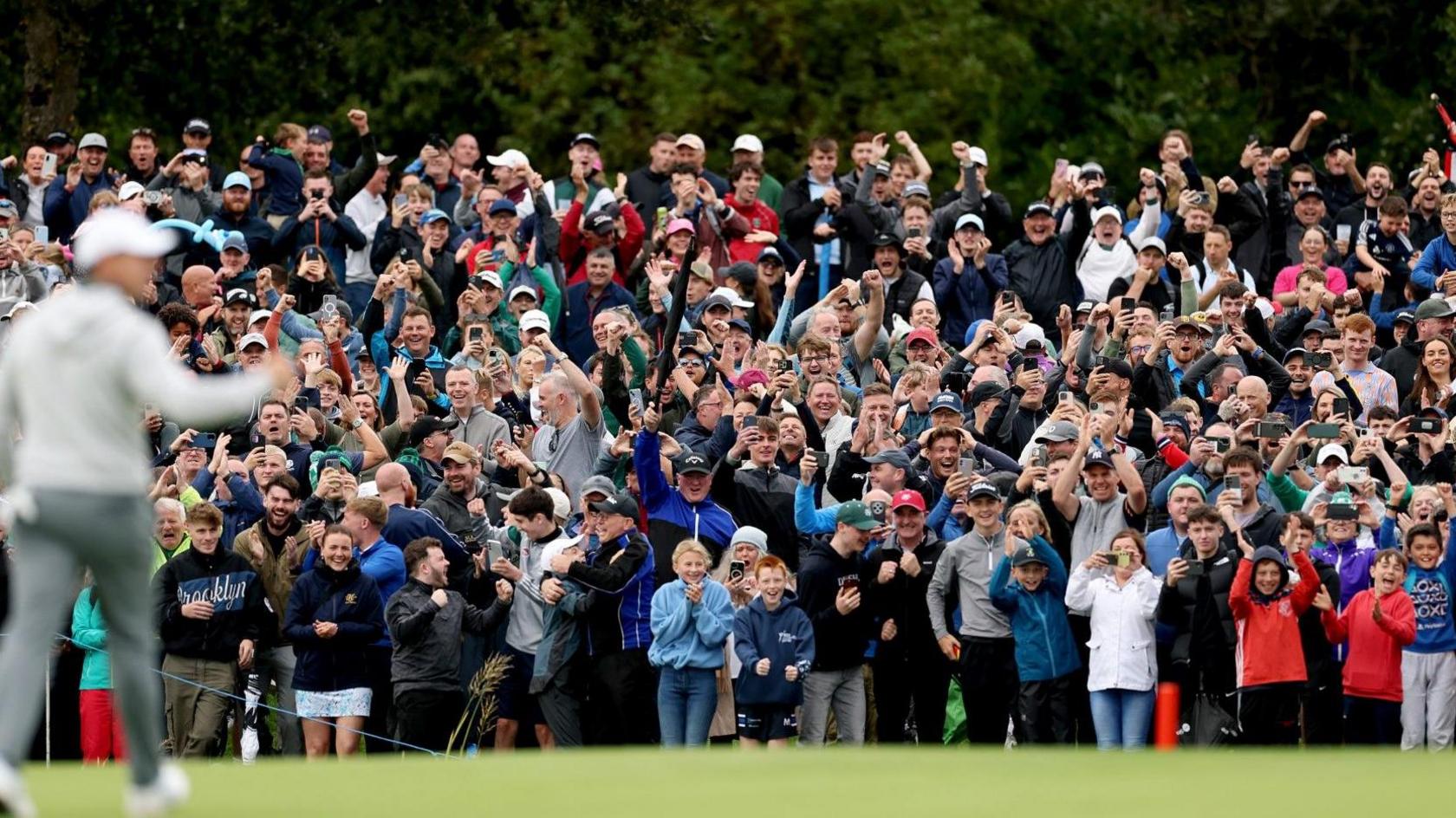The deafening roar that greeted Rory McIlroy’s curling eagle putt on the 72nd hole of the Amgen Irish Open felt like seismic confirmation – not just of his brilliance, but of golf’s unique power to electrify hometown crowds. As two ecstatic Irish boys in red caps danced wildly on the K Club fringe, their unfiltered joy mirrored by thousands of roaring spectators, the moment transcended ordinary tournament golf. This was sport as raw theater, a visceral climax showcasing why we endure four-day marathons of tension for such euphoric payoffs. Yet beneath this celebration of homegrown heroics lurked uncomfortable questions about modern fandom – questions casting long shadows over September’s Ryder Cup showdown.
A Scandinavian Underdog Amid the Madness
Lost in McIlroy’s headline-grabbing charge stood Joakim Lagergren, the unheralded Swede scripting his own redemption tale. Twelve months earlier, he’d fought through Challenge Tour obscurity at this same venue, resurrecting a career once headed for golf’s scrapheap. His three-shot lead entering Sunday deserved ovations – until McIlroy’s Houdini act forced a playoff against all odds. What followed revealed fan behavior’s uneasy duality: a crowd capable of transcendent passion, yet willing to weaponize it against an outsider.
When Partisanship Crosses Golf’s Etiquette Line
The playoff’s first hole saw Lagergren confronted by scattered shouts of “Get in the water!” during his backswing – jarring conduct alien to golf’s traditional reverence for opponents. When his approach found the pond at the decisive third extra hole, full-throated cheers erupted across County Kildare. These weren’t isolated hecklers but collective revelry in an opponent’s misfortune. While broadcasters overlooked the moment, attentive viewers sensed golf’s unwritten covenant fraying: the balance between celebrating excellence and respecting athletes’ dignity.
Ryder Cup Rivalry: Tribal Catharsis on Display
Contrast this with last autumn’s Ryder Cup in Rome, where European crowds vocally celebrated American errors like Rickie Fowler’s watery tee shot at the 16th. These biennial clashes operate under different rules – golf’s version of gladiatorial theater where painted faces and coordinated chants (like the bare-headed jeering of Patrick Cantlay) are embraced as spectacle. Luke Donald’s men harnessed that energy for victory, proving home advantage’s double-edged nature: electrifying for allies, corrosive for visitors.
The Ryder Cup’s High-Stakes Test at Bethpage Black
This sets the stage for September’s powder-keg showdown at Bethpage Black, where New York’s famously boisterous galleries will amplify Irish passion tenfold. History warns of Ryder Cups derailed by toxic fandom – from Brookline’s premature celebrations (1999) to Hazeltine’s personal attacks on McIlroy (2016). The PGA of America promises enhanced crowd control measures, but managing the thin line between rowdy and ruinous remains daunting.
McIlroy arrives as both Europe’s linchpin and lightning rod. Beyond his Pebble Beach and Players Championship triumphs looms his complicated history with U.S. crowds. Yet Sunday’s performance proved his unrivaled ability to convert external pressure into clutch brilliance – could there be sweeter vindication than silencing Bethpage’s roar with decisive putts?
Walking Golf’s Etiquette Tightrope
Neither continent holds moral superiority. European Ryder Cup crowds now match American events’ notorious volume, just as Ireland showcased both golf’s magic (those boys’ pure elation) and its dark edges (Lagergren’s unjust treatment). Sportsmanship needn’t demand sterile silence – passion fuels golf’s drama. But when collective schadenfreude overshadows respect for excellence, we drift toward football terraces rather than pristine fairways.
McIlroy’s Defining Ryder Cup Mission
The world No. 2 enters September bearing twin burdens: Europe’s trophy hopes and the symbolic weight of golf’s evolving ethos. His Irish Open win came against an opponent drained by partisan hostility – an invaluable dress rehearsal for Bethpage’s psychological warfare. Should McIlroy lead Europe to victory amid golf’s most hostile arena since the War by the Shore, it would cement his legacy beyond majors.
Those dancing Irish boys embody why fan passion matters – sport’s power to inspire generations through moments of shared wonder. Let Bethpage’s cheers thunder for brilliance, never against failure. Let outcomes be decided by skill and nerve, not crowd-induced errors. For golf’s soul thrives not in division, but in collective awe – for Lagergren’s resilience, McIlroy’s genius, and the Ryder Cup rivalries that make this game pulse with unforgettable intensity.
